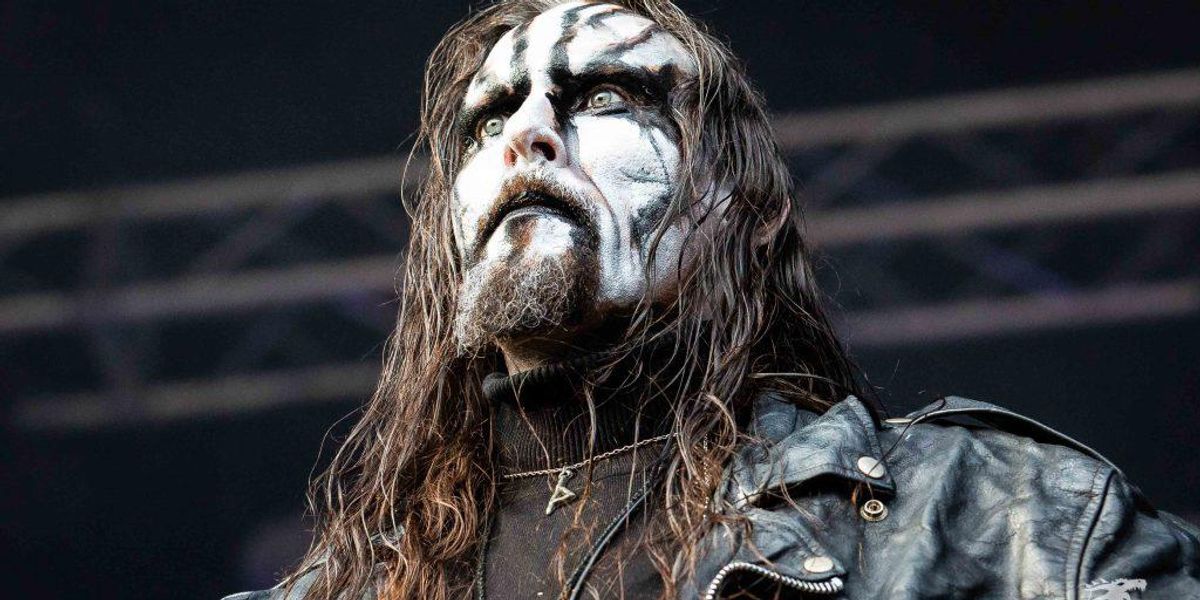
Metal has long been associated with hyper-masculinity.
The brutish force of extreme music often speaks to emotionally suppressed white males, and as history has shown, metal and all its subgenres have at times had a difficult time welcoming in queer artists.
With that said, there remains an ever-growing list of impactful queer metal artists that have come to shape rock music as a whole into a more welcoming place for LGBTQ+ artists and fans. Here are some of metal’s most iconic LGBTQ+ musicians, as well as a few you might not have known about.
Nervous Gender
This hardcore punk outfit was birthed in the tumultuous late ’70s, but as a queer rock group, they helped kickstart an exciting new wave of queercore music. Their raunchy live shows were characterized by unpredictable antics such as provoking audience members to fight each other and refusing to get off the stage after their set. Additionally, their harsh experimental sound guaranteed that they would never gain commercial acceptance, but regardless the group remains one of queer music’s most impactful and underappreciated gems.
Paul Masvidal and Sean Reinert
Cynic
The ’90s duo of Paul Masvidal and Sean Reinert are best known for their jazzy death metal reworks as part of Cynic, but rumors of a secret love affair between the two rockers swirled around them for years. Modern metal acts often cite Cynic, as well as their previous band, Death, as groundbreaking pioneers in the world of extreme music due to their experimentation with jazz and technical use of instruments. However, due to the macho extremism of death metal’s culture, the pair remained silent on their love affair until 2014, when they proudly came out together in a LA Times expose.
Rob Halford
Rob Halford
Debatably the most famous and important queer figure in metal, Judas Priest’s “The Metal God” needs no introduction, as JP’s frontman, he helped usher in a new wave of British Heavy Metal in the early ’80s. Halford has been an open advocate for LGBTQ+ rights and often speaks transparently about what it was like to come out as a metal singer. He is regularly cited as one of the most influential queer musicians of all time and has been praised for helping the queer community find its place in extreme music.
Gaahl
Gaahl
The former frontman of the Norwegian black metal band Gorgoroth has made jarring headlines over the years for a variety of reasons, but when he came out as homosexual in 2008, it trumped everything else in the black metal community.
He received death threats both at his door and by mail, but in the end, he shut the hate down with an epic statement via Blabbermouth. “Mankind is known to be narrow-minded, so…maybe some will have a negative reaction…I think it will be positive for some and negative for some,” he said. “It’s always good to have some negative as well. Otherwise, you would end up with equality and equality is the worst thing in the world. Equality is stagnation. It doesn’t let anything grow. It holds back.”
The Dicks
This 1980s hardcore punk band led the charge for the Texas punk movement, and more importantly, that charge was led by an openly gay frontman. The Dicks were infamous for their nonconformity and incorporated jazz and blues into their brutish rock. Like Nervous Gender, The Dicks were partly responsible for ushering in the queercore movement.
Laura Jane Grace
Laura Jane Grace
The frontwoman of Florida punk outfit Against Me! came out as trans in 2012, saying she had long suffered from gender dysphoria. Since transitioning, Laura Jane Grace has gone on to make two more outstanding albums with the group, such as 2014’s Transgender Dysphoria Blues. She remains a staunch advocate for LGBTQ+ equality.






 29
29